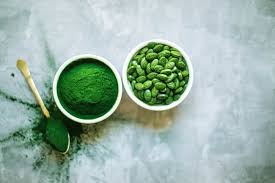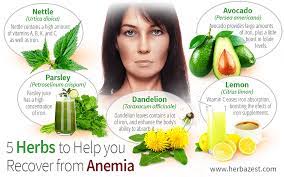10 health benefits of Spirulina: Algae as a super food
Blue-green algae, scientifically named Arthrobacter platensis, commonly known as spirulina, is a kind of naturally produced ready-to-use nutrients. It usually grows in alkaline water in warm areas. It is relatively easy to cultivate and contains many useful compounds that have a positive effect on human health. It is commonly used in supplements, animal feed and aquatic feed.
Spirulina is a natural superfood with many health-related benefits. Let's explore the top 10 health benefits of spirulina as a superfood:
1. Ideal nutrients: The use of spirulina is not new; it was used by the ancient Aztecs, and it became very popular recently when NASA proposed that astronauts use it. It is a perfect combination of nutritional compounds. One tablespoon of spirulina powder (7 grams) contains 4 grams of protein, 1.7 grams of carbohydrates, ⁓1 grams of fat (including Omega 3 and 6), vitamins (B1, B2, B3), copper, iron, magnesium, potassium, manganese and All other nutrients essential to health.
2. Antioxidant and anti-inflammatory: Spirulina is a strong antioxidant that can prevent cells from forming oxidative damage. The key player in this regard is phycocyanin, which is a pigment that makes spirulina blue-green and has strong antioxidant and anti-inflammatory effects.

3. Prevention of heart attack: Heart attack is the main cause of death. Spirulina can prevent heart attacks by lowering cholesterol levels. It can lower bad cholesterol (LDL) and increase good cholesterol (HDL), thereby improving health.
4. Anti-tumor activity: There is evidence that spirulina can play an anti-cancer effect. The role of spirulina in oral submucosal fibrosis (OSMF) has been extensively studied. Studies have shown that 1 gram of spirulina per day can reduce lesions by up to 45% within a year, and has a higher anti-cancer potential. OSMF is comparable to the drug Pentoxyfilline Compare.
5. Regulate blood pressure: Hypertension can cause a variety of serious diseases, including stroke, heart attack and kidney failure. It was found that Spirulina has the effect of lowering blood pressure by producing nitric acid, which is a signaling molecule that helps blood vessels relax and expand. A dose of 4.5 g was found to be the most suitable for lowering blood pressure. However, overdose of spirulina may cause an abnormal decrease in blood pressure.
6. Anti-allergic: Spirulina can be used as a potential substitute for allergic rhinitis caused by allergens such as pollen, dust and animal hair. A dose of 2 grams per day has shown very positive results in terms of symptom control.
7. Coping with anemia and alleviating weakness: Anemia is characterized by a decrease in the level of hemoglobin in the blood, especially the elderly are prone to fatigue, fatigue and weakness. A study showed that the use of spirulina increases the number of red blood cells.

8. Increase muscle strength and improve recovery: due to oxidative damage, exercise can cause muscle fatigue. The antioxidants in spirulina help to recover quickly and reduce fatigue. The role of micronutrients is to provide the body with the necessary nutrients to improve strength and endurance.
9. Regulate blood sugar levels: Spirulina has been found to have a positive effect in regulating blood sugar levels. It lowered blood sugar levels and was found to reduce the HbA1c marker by 8-9%. Lowering the marker by 1% can reduce the risk of death due to diabetes by 21%. In the study, spirulina performed better than several traditional drugs used to treat diabetes, including metformin.
10. Mood regulator: Spirulina is a source of tryptophan, which is an amino acid that leads to the synthesis of serotonin. People with depression and anxiety usually have lower levels of serotonin, so spirulina can play a key role in mood regulation and mental health.
Related Posts
- 5 famous theories about how life evolved on earth
- 10 Popular 5G Applications Revolutionizing Communication
- 10 Ethical Hacking Techniques to Identify Vulnerabilities in Your Systems
- Tips to Protect Your Online Privacy
- 10 Best Noise-Canceling Headphones for Focusing
- 10 Must-Have Smart Home Devices for 2024